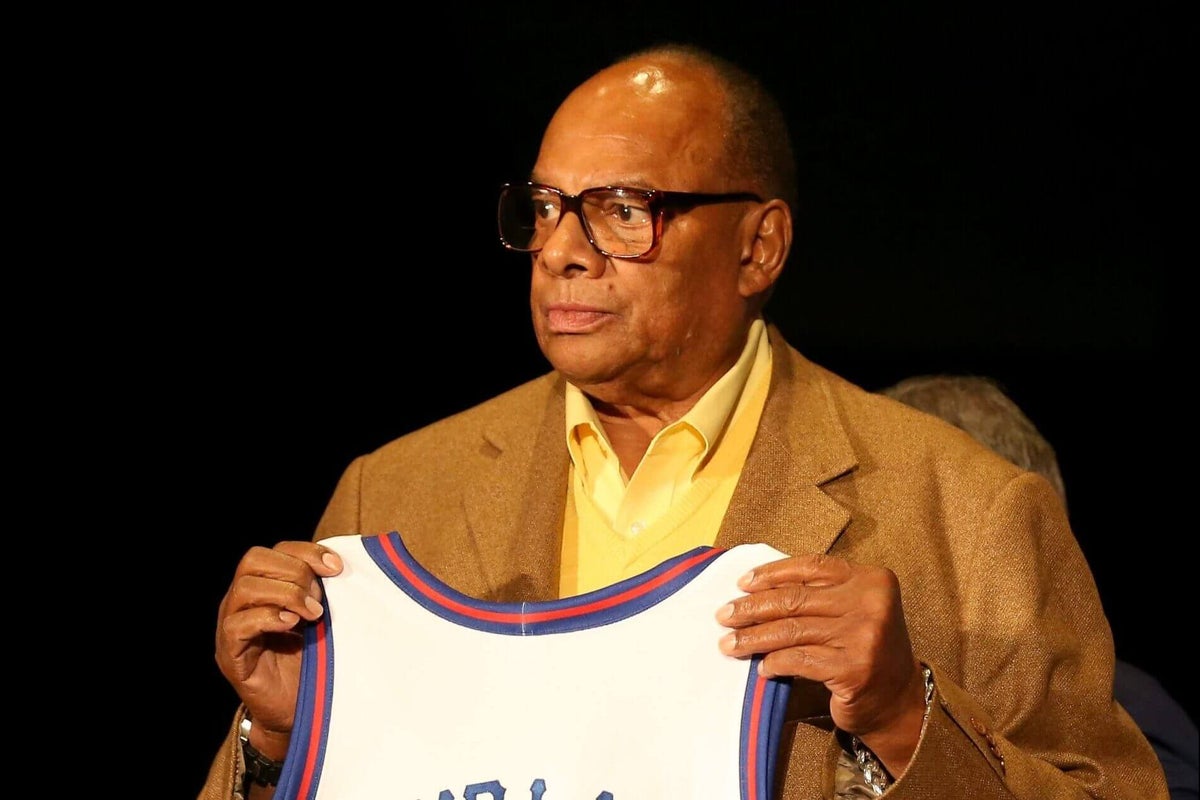George Raveling, the former Villanova standout who coached in college basketball for more than two decades before retiring and moving to Nike, has died, according to an announcement from his family on Raveling’s website.
His family wrote that he “faced cancer with courage and grace,” and “transitioned peacefully, surrounded by family.” He was 88.
Raveling, who coached at Washington State, Iowa and USC, was inducted into the National Collegiate Basketball Hall of Fame in 2013 and the Naismith Memorial Basketball Hall of Fame in 2015.
Numerous coaches and people connected to the game expressed their sadness at Raveling’s death on social media. ESPN analyst Jay Bilas wrote that Raveling was “a true guardian of the game” and “an icon.”
Former Villanova coach Jay Wright described Raveling as “the finest human being, inspiring mentor, most loyal alum and a thoughtful loving friend.”
Missouri coach Dennis Gates wrote of Raveling: “Who am I without your guidance, your love, your inspiration and your mentorship? Thank you coach, I will miss you and I love you.”
In a news release from Iowa, Scott Howard, director of player personnel with the Denver Nuggets, said of Raveling: “He was my best friend … he was 1 of 1.” Howard, who served two years as a graduate assistant and one as a volunteer assistant under Raveling at Iowa and later at USC, added: “He was an amazing guy with a great sense of humor and had a great way about him.”
In a statement, NABC executive director Craig Robinson said Raveling was “one of the foremost role models for how coaches can utilize their influential platforms to impact societal change and advance the cause of racial equity.”
Born in 1937 in a segregated hospital in Washington, D.C., Raveling became the first Black coach in the ACC when Lefty Driesell hired him as an assistant at Maryland in 1969.
In 1972, he became the first Black coach in the Pac-12 (then the Pac-8) when he was hired as head coach at Washington State. He served as an assistant coach for both the 1984 and ’88 U.S. Olympic men’s basketball teams, earning both a gold and bronze medal, respectively.
For all his on-court accomplishments, though, Raveling was best known for what he did later in life — specifically when he retired from coaching (and a brief stint commentating) in 1994 and joined Nike, at the personal request of co-founder Phil Knight.
At 63, Raveling had risen to the position of director of international basketball.
On his website, Raveling wrote of this time: “Despite being an ex-basketball coach, a Black man with no formal business background beyond an economics degree, I found myself leading a major Fortune 500 division.”
He called the decades between ages 60 and 80 “the most productive of my life.”
His most impressive Nike recruit came before he began working for the sportswear behemoth, though.
While an Olympic assistant, Raveling played a pivotal role in Nike signing a young Michael Jordan from the University of North Carolina, helping build a global brand that continues to thrive today. In the 2023 movie “Air,” which tells the story of Nike persuading Jordan to pick the swoosh, Raveling was played by Marlon Wayans.
Jordan wrote the forward for Raveling’s book, “What You’re Made For,” which was published in 2025, and said he was “proud to call George a mentor and a friend.”
He added, “If not for George, there would be no Air Jordan.”
Despite owning basketball memorabilia from around the world, one of Raveling’s most prized possessions was the physical copy of Dr. Martin Luther King Jr.’s “I Have a Dream” speech, which King delivered on Aug. 28, 1963, on the steps of the Lincoln Memorial in Washington.
Raveling was 26 at the time and working as a marketing analyst for Sun Oil Co. Randomly, Raveling, who was a hulking 6 foot 4 and more than 200 pounds, was asked by a march organizer if he’d be willing to volunteer as a security guard. Raveling agreed.
Raveling was standing near Dr. King when the civil rights leader uttered the famous line, “I have a dream.”
Raveling later explained: “At the end of the speech, as Dr. King finished and started to fold his speech, as he walked away, I just said — I don’t know why, just impulsively said: ‘Dr. King, can I have that copy?’ And he turned and handed it to me.”
In 2021, Raveling donated the physical copy of the speech to Villanova.
Raveling often joked that he didn’t believe in the idea of retirement. He was adamant about being a contributor to society, no matter his age, writing, “Our lives consist of two dates with a dash in between. It is our responsibility to make that dash count.”
(Photo: Streeter Lecka / Getty Images)

